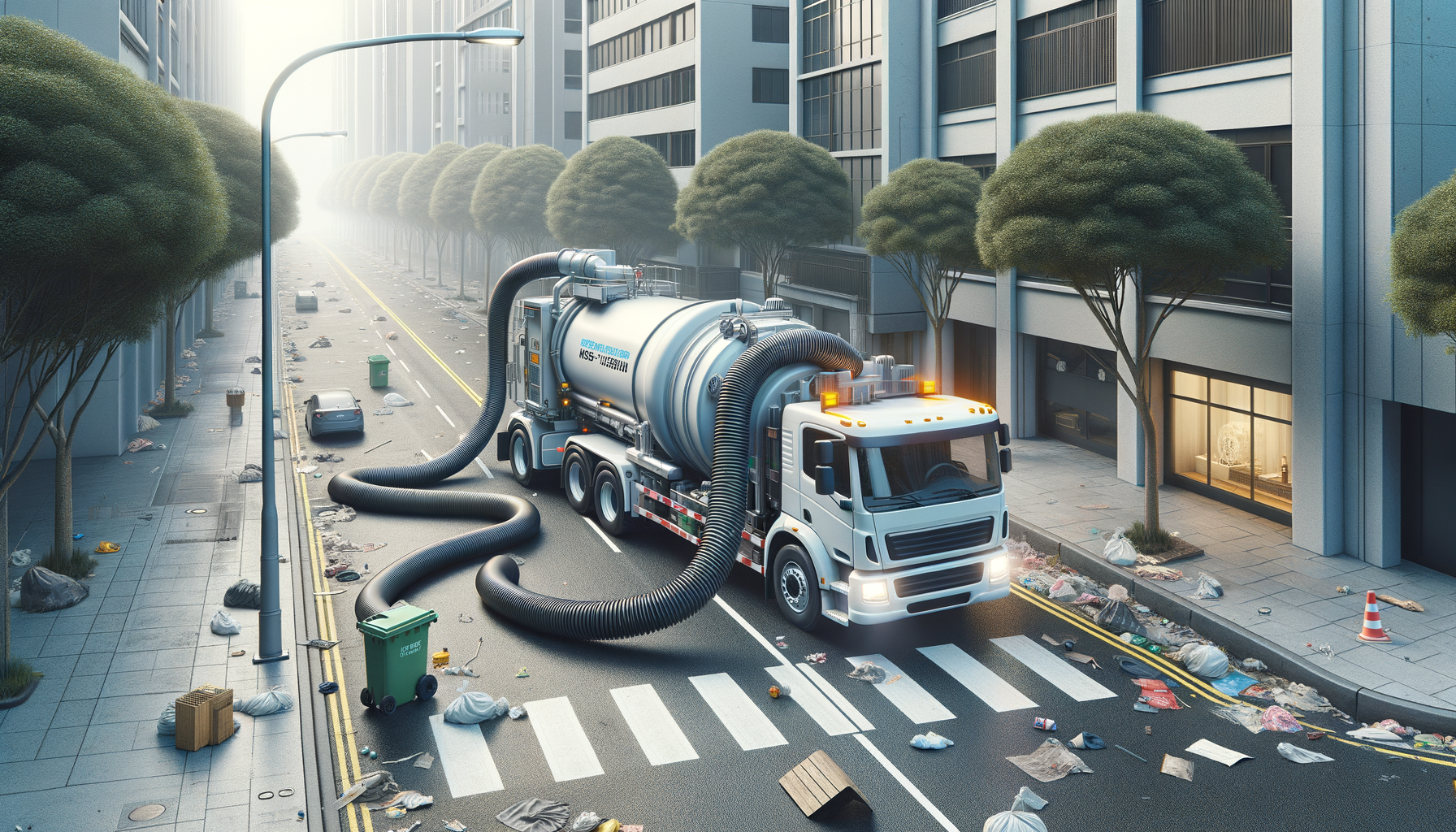Understanding Vacuum Trucks: A Comprehensive Overview
Vacuum trucks, also known as vacuum tankers, are specialized vehicles equipped with a vacuum pump and a tank. These machines are primarily used for the transportation and removal of liquid waste and sludge. They play a crucial role in environmental management and sanitation, offering a practical solution for the safe disposal of waste materials. Vacuum trucks are widely utilized in various industries, including municipal waste management, construction, and oil and gas sectors. Their ability to efficiently handle both wet and dry waste makes them invaluable in maintaining cleanliness and hygiene, especially in urban areas.
The core components of a vacuum truck include a powerful vacuum pump, a debris tank, and a series of hoses and valves. The vacuum pump generates a vacuum within the tank, allowing it to suck up liquids, sludges, and even some solids through the hoses. These trucks are versatile and can be used for a range of applications, from cleaning septic tanks and sewer systems to removing industrial waste. With a focus on safety and efficiency, vacuum trucks are designed to minimize spillage and contamination, making them an environmentally friendly option for waste management.
Applications and Industries: Where Vacuum Trucks Shine
Vacuum trucks are indispensable in a variety of industries due to their versatility and efficiency. In the municipal sector, these trucks are primarily used for sewer and septic tank cleaning, ensuring that waste is properly managed and disposed of. This helps prevent blockages and overflows, which can lead to environmental hazards and public health issues. Additionally, vacuum trucks are employed in stormwater management, where they assist in clearing debris from catch basins and storm drains.
In the construction industry, vacuum trucks are used to remove water and slurry from excavation sites, allowing work to continue without delays caused by flooding. They are also essential in the oil and gas industry, where they transport drilling mud and other waste materials away from drilling sites. The ability to handle hazardous and non-hazardous waste makes vacuum trucks a versatile tool for maintaining safety and compliance with environmental regulations.
Beyond these industries, vacuum trucks are also used in emergency response situations, such as oil spill clean-ups and natural disaster recovery. Their rapid deployment capability and effectiveness in removing large volumes of waste make them a critical asset in mitigating environmental damage.
Environmental Impact and Sustainability
Vacuum trucks play a significant role in promoting environmental sustainability. By efficiently collecting and transporting waste, they help reduce the risk of contamination and pollution. This is particularly important in urban areas, where improper waste management can lead to severe environmental and health issues. The advanced technology used in modern vacuum trucks ensures that waste is handled safely, with minimal impact on the surrounding environment.
One of the key environmental benefits of vacuum trucks is their ability to prevent groundwater contamination. By safely removing waste from septic systems and sewer lines, these trucks help protect water sources from harmful pollutants. Additionally, the use of vacuum trucks in industrial settings helps contain hazardous materials, preventing them from entering the natural ecosystem.
Moreover, many vacuum truck manufacturers are now focusing on developing more sustainable and energy-efficient models. This includes the use of alternative fuels, such as biodiesel, and the implementation of advanced filtration systems to reduce emissions. As environmental regulations become more stringent, the demand for eco-friendly vacuum trucks is expected to rise, further contributing to a cleaner and more sustainable future.
Technological Advancements in Vacuum Trucks
The vacuum truck industry has seen significant technological advancements in recent years, enhancing their efficiency and performance. Modern vacuum trucks are equipped with sophisticated control systems that allow operators to monitor and adjust the vacuum process in real-time. This not only improves the precision of waste removal but also increases the safety and reliability of the operation.
One notable advancement is the integration of GPS and telematics systems, which provide detailed information about the truck’s location, performance, and maintenance needs. This data-driven approach enables fleet managers to optimize routes, reduce fuel consumption, and ensure timely maintenance, thereby extending the lifespan of the vehicles.
Furthermore, innovations in pump technology have led to the development of more powerful and energy-efficient vacuum pumps. These pumps can handle a wider range of waste materials, including heavy sludge and semi-solids, without compromising performance. As technology continues to evolve, vacuum trucks are expected to become even more efficient and versatile, meeting the growing demands of various industries.
Choosing the Right Vacuum Truck for Your Needs
Selecting the appropriate vacuum truck for your specific needs requires careful consideration of several factors. The type of waste to be handled is a primary consideration, as different trucks are designed to manage various waste materials, from liquid to semi-solid and hazardous waste. Understanding the specific requirements of your industry will guide you in choosing a vacuum truck with the right capacity and features.
Another important factor is the size and capacity of the vacuum truck. Depending on the volume of waste to be collected, you may need a truck with a larger tank and more powerful pump. Additionally, consider the accessibility of the areas where the truck will operate. In urban environments, a compact truck may be more practical, whereas rural or industrial sites may benefit from larger, more robust models.
Lastly, consider the technological features and sustainability aspects of the vacuum truck. Opting for a model with advanced control systems and eco-friendly technologies can enhance efficiency and reduce environmental impact. By carefully evaluating these factors, you can select a vacuum truck that meets your operational needs while contributing to sustainable waste management practices.




Leave a Reply